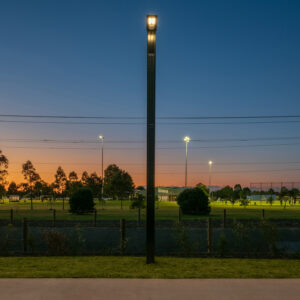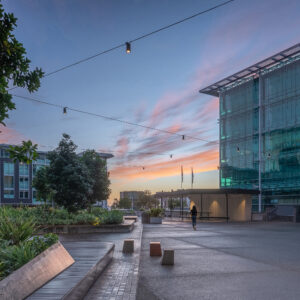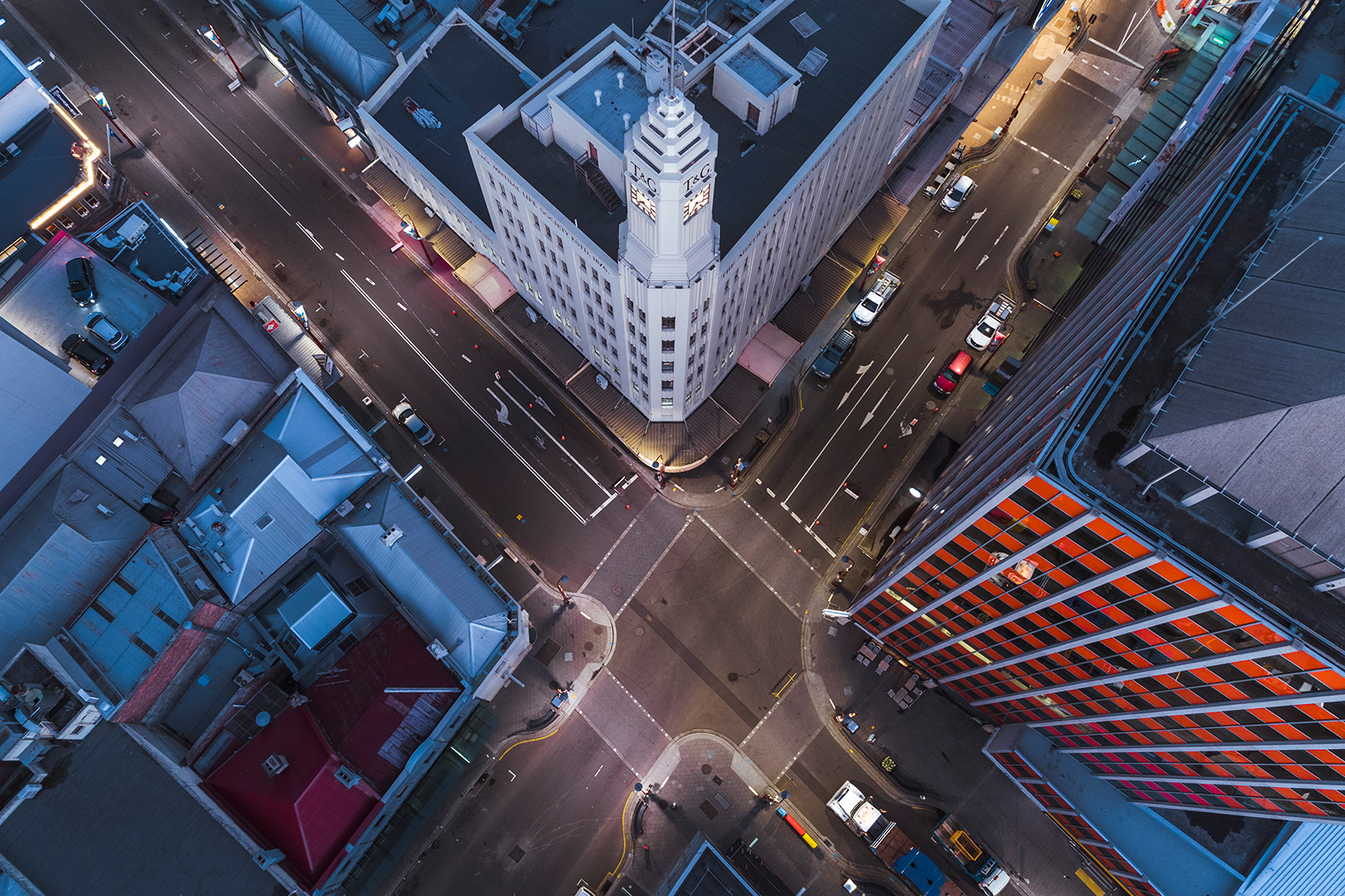
PEDESTRIAN, STREET & AREA LUMINAIRES
Bringing energy efficiency to Hobart’s centre
Hobart CBD, TAS
- Completed2013
- ClientHobart City Council
- Sales PartnerSouthern Lighting & Distribution
- Lighting DesignWE-EF
- PhotographyJackie Chan
As part of an upgrade of the CBD and Wapping precinct, the City of Hobart wanted to replace sodium vapour luminaires in these areas with an energy-efficient and easy-to-maintain alternative.
The existing lighting scheme in the CBD was dominated by 50 W and 70 W sodium vapour luminaires fitted on poles at varying spacings, with some wall-mounted luminaires in the Wapping precinct. It was installed about 20 years ago when the council commissioned a revitalisation of the area, which included the replacement of some standard road lighting luminaires with non-standard lighting chosen to reflect the aesthetic of the re-design.
WE-EF Sales Partner Southern Lighting & Distribution was engaged to assist with the lighting aspects of the project. As well as the supply and installation of new lighting on existing poles, Southern Lighting was also required to protect trees, other plantings and landscaping features from damage. The areas requiring the lighting upgrade were used for vehicle and pedestrian traffic and most were designed to V1 category assuming R3 for road surfaces and luminance calculations.
The primary challenge of this project was to produce a bespoke spigot adaptor. “We had to get the spigot adapter to suit the hook on the existing poles,” Stuart Hamilton, a director at Southern Lighting & Distribution said. “We asked the council to bring the hook to one of our workshops and in the process, we noticed there was quite a lot of rust on the hook and it was in poor condition. “The consequence was that the whole hook was condemned on all the poles…. So we could now design something for the ASP530 luminaire to fit an Australian standard hook mount,” he said.
The project utilised WE-EF’s ASP530 street and area luminaires in a range of wattages, designed to withstand the rigours of outdoor application. This was especially important as they were installed within 500 metres of the waterfront and would at times be exposed to salt-laden water, as well as related pollutants from the roadway.
The LED modules of the ASP530 luminaires use the patented WE-EF OLC® One LED Concept technology. OLC® combines the multi-layer lighting approach with modular PCB/LED/lens engineering, and thereby balances the need for safety with visual comfort and energy savings.
For maximum corrosion protection, WE-EF’s 5CE+Primer was included. The 5CE+Primer features an additional specially formulated ‘intercoat’ bonding epoxy primer and is particularly suitable for coastal installations with aggressive environments.
“The reasons that WE-EF luminaires were chosen for this application were their superior aesthetic appeal, energy efficiency, longevity, local service and their ability to comply with the category V1 lighting,” Mr Hamilton said. “It was also important they had an IP66 rating and could be cleaned from ground level from a vehicle with a high-pressure hose.”
The other important factor in the selection of lighting equipment was energy efficiency. The new installation in the Hobart CBD uses around 70,363 kWh compared to the original system that was using 78,585 kWh. “The lighting is a lot brighter than what was there previously, otherwise the energy savings would have been higher,” Mr Hamilton said. “From a design and maintenance perspective the lighting has performed well.”
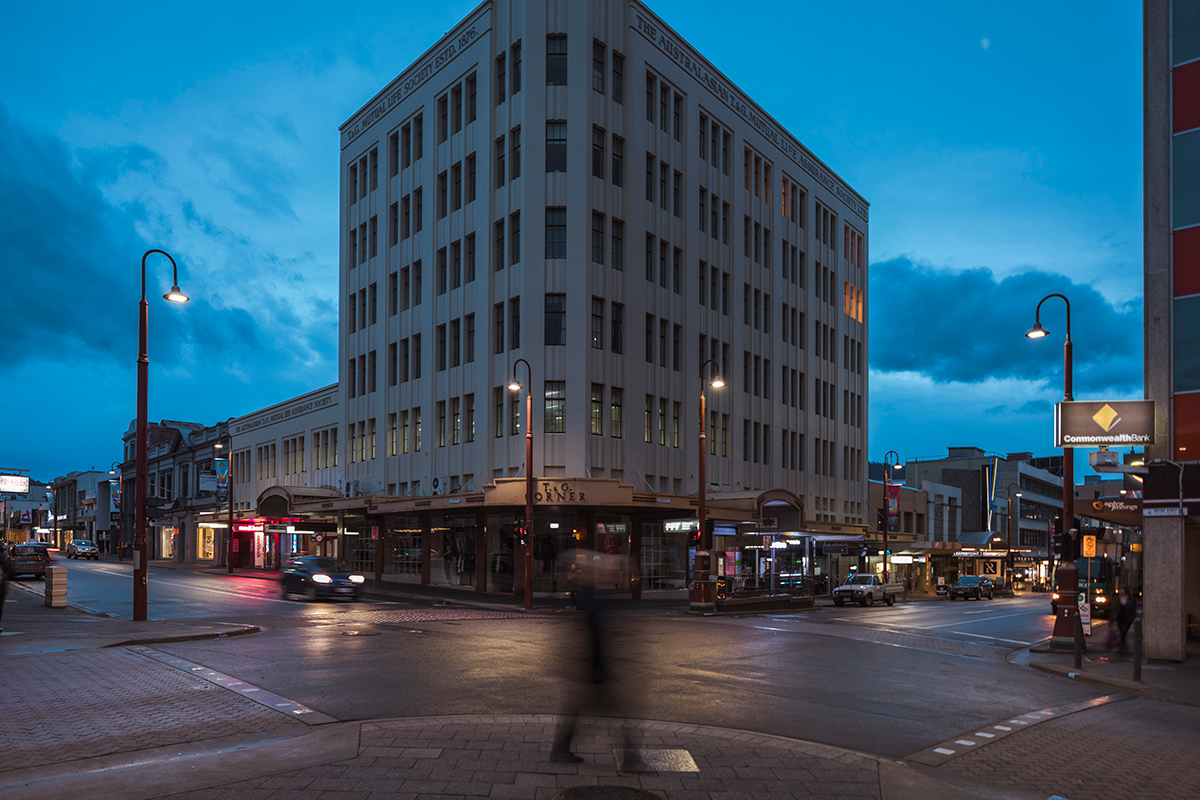
As part of an upgrade of the CBD and Wapping precinct, the City of Hobart wanted to replace sodium vapour luminaires in these areas with an energy-efficient and easy-to-maintain alternative.
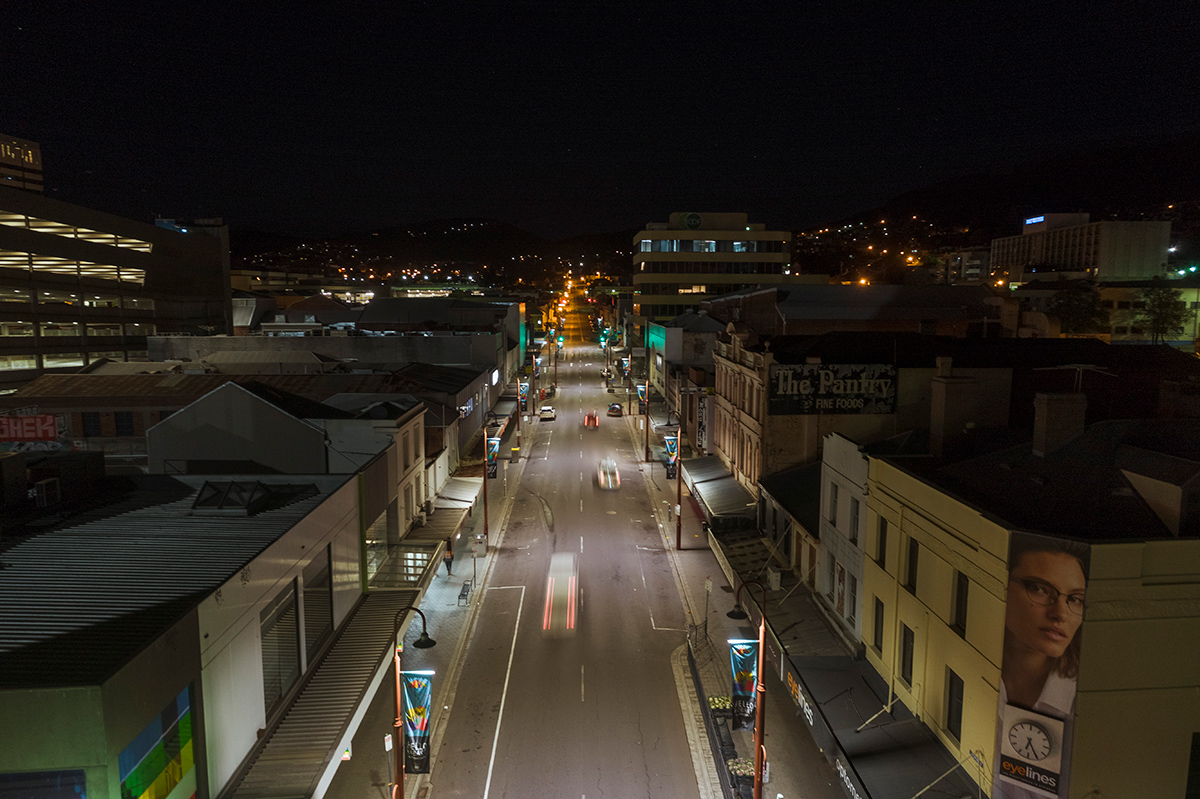
The project utilised WE-EF’s ASP530 street and area luminaires in a range of wattages, designed to withstand the rigours of outdoor application.
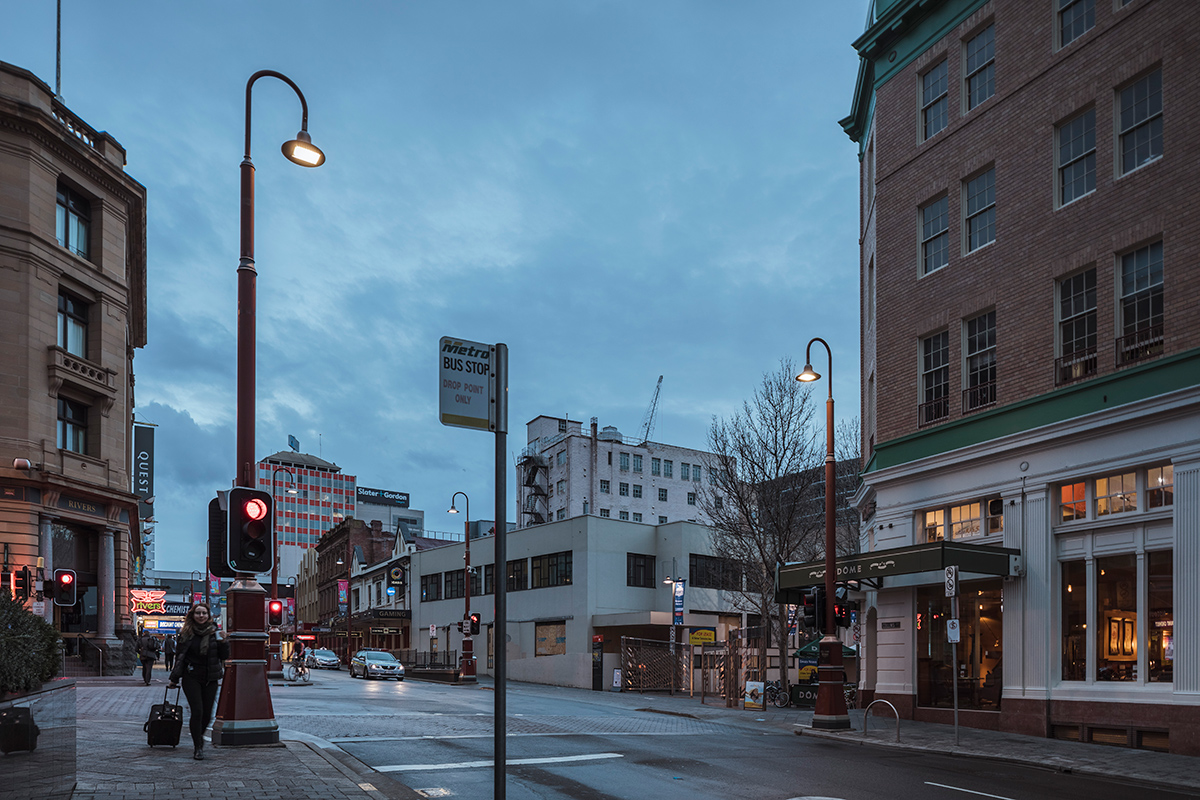
WE-EF luminaires were chosen for this application were their superior aesthetic appeal, energy efficiency, longevity, local service and their ability to comply with the category V1 lighting.
